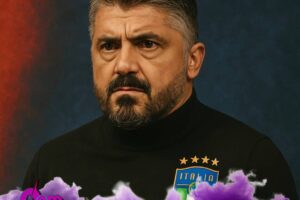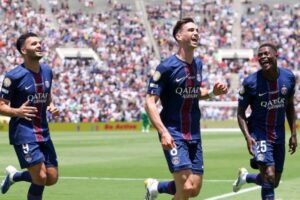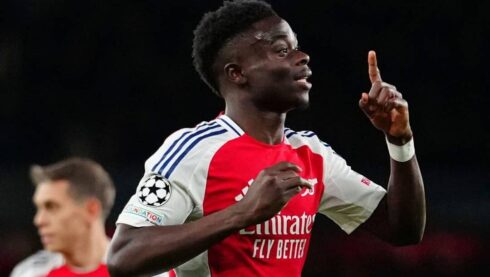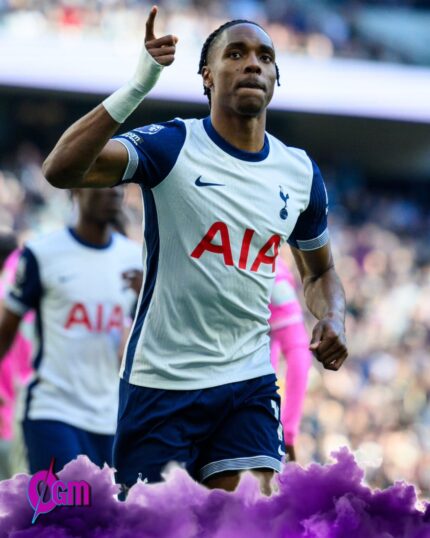Eighteen-year-old Myles Lewis-Skelly etched his name into Arsenal’s history books with a remarkable Champions League debut that belied his tender age. Making his first European start, the young left-back demonstrated a maturity and skill set that immediately caught the eye of fans and pundits alike. His pivotal moment came in the 34th minute when he won a crucial tackle in Monaco’s half, setting up a move that would ultimately lead to Arsenal’s opening goal.
Lewis-Skelly’s performance was a testament to Arsenal’s commitment to youth development. Despite primarily being a midfielder, he showcased exceptional adaptability at left-back, displaying a rare combination of technical prowess and physical resilience. His ability to receive the ball under pressure, skip past defenders, and deliver precision passes highlighted why he is considered one of the most promising talents in the Arsenal academy.
Though substituted after 64 minutes, Lewis-Skelly’s performance underscored his readiness for top-flight football, even while managing a foot infection, as revealed by manager Mikel Arteta. His seamless integration into the team dynamics suggests he could play a significant role in Arsenal’s season, especially in high-stakes matches.
Bukayo Saka: The Consistent Catalyst of Arsenal’s Attack
Bukayo Saka continued to cement his status as a pivotal player for Arsenal, delivering a masterclass performance that underscored his growing importance to the team. The 23-year-old’s impressive statistics speak volumes – 20 goal involvements this season, including eight goals and twelve assists, second only to Mohamed Salah in the Premier League. His brace against Monaco further demonstrated his ability to perform on the biggest stages.
In the Champions League, Saka has become a genuine difference-maker, scoring and assisting in five different games since Arsenal’s return to the competition. His clinical finishing and creative vision were on full display, with goals in the 78th and 88th minutes that effectively sealed the victory. Notably, he has now scored as many Champions League goals for Arsenal as legendary players Dennis Bergkamp and Mesut Ozil, a remarkable achievement in just 14 appearances.
Gabriel Jesus: A Tale of Missed Opportunities and Redemption
Gabriel Jesus embodied the classic narrative of potential unfulfilled and momentary brilliance in this match. Despite missing two clear-cut one-on-one opportunities in the first half, the Brazilian forward demonstrated his value with a sublime assist for Saka’s opening goal. His movement and vision were key in creating space and opportunities for his teammates.
Manager Mikel Arteta’s faith in Jesus was evident in his post-match comments, emphasizing the fine margins that separate success from disappointment. While Jesus might not have secured a guaranteed starting spot in the Premier League lineup, his ability to create and contribute remains an essential component of Arsenal’s attacking strategy. His performance highlighted the ongoing challenge of consistency that continues to define his tenure at the club.
Tactical Mastery: Arteta’s Vision and Team Performance
Mikel Arteta’s tactical approach was vindicated by a comprehensive 3-0 victory that showcased Arsenal’s depth and potential in the Champions League. The manager’s praise for young talents like Lewis-Skelly and his continued support for players like Jesus illustrate a long-term vision of development and performance.
The clean sheet and controlled performance against Monaco demonstrated Arsenal’s growing maturity in European competition. With key players contributing across different stages of the game – from Lewis-Skelly’s breakthrough to Saka’s clinical finishing and Havertz’s impactful cameo – the team showed they are more than capable of competing at the highest level.
What’s Next for Arsenal?
The Gunner will turn their attention to the Premier League with a crucial home match against Everton on Saturday, December 14. The team will look to carry this momentum forward as they push for domestic and European success.














